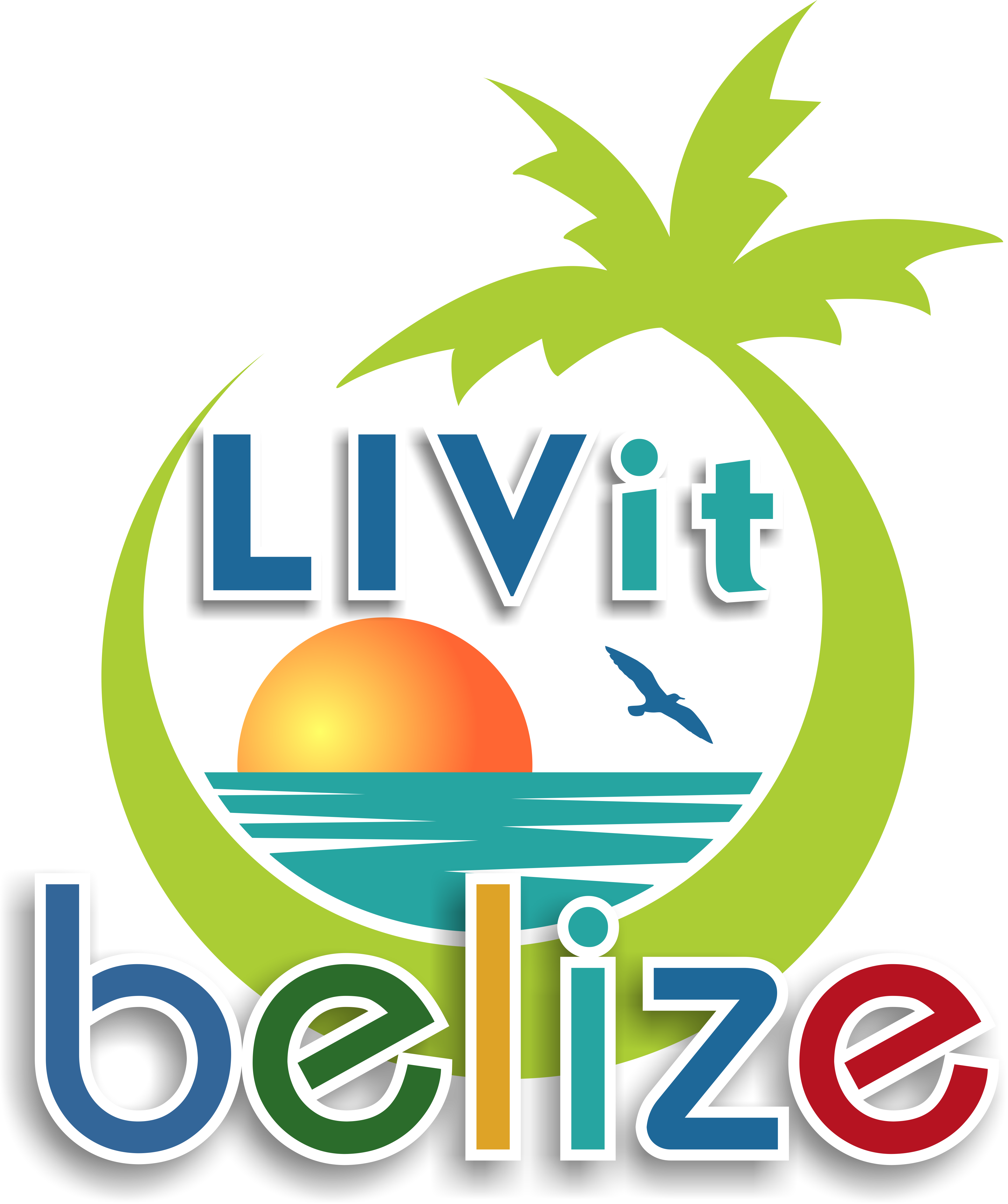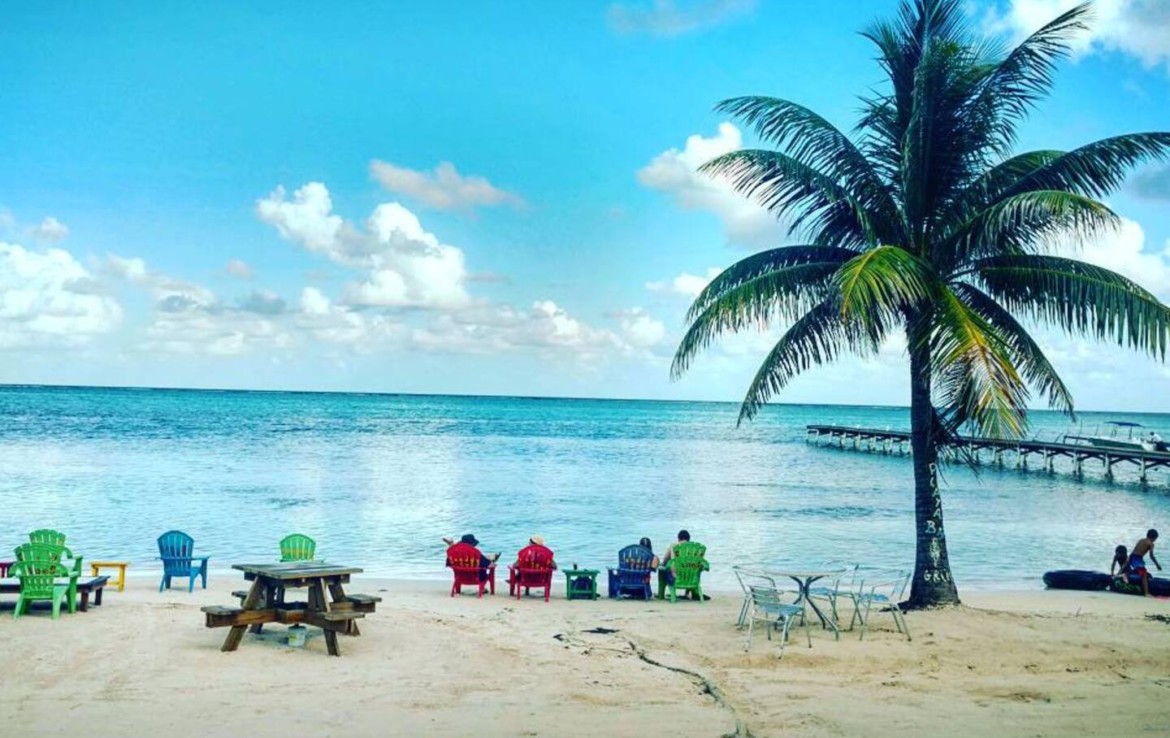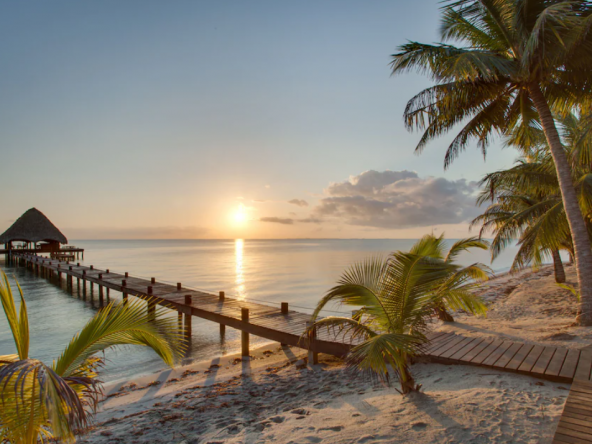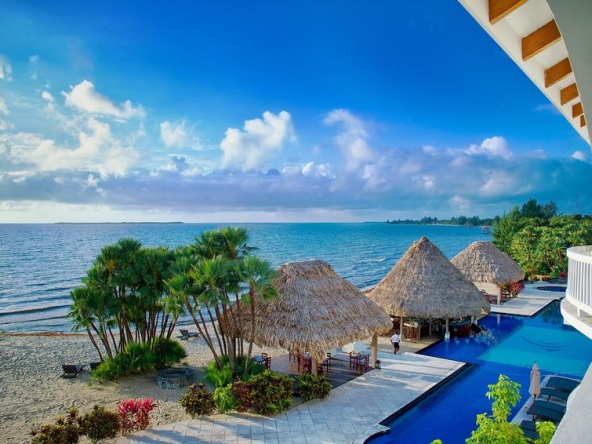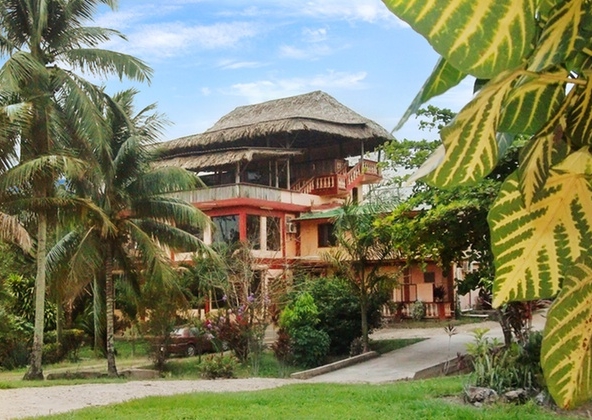A Perspective from Belize: The Wildly Unpredicted Success, in the first 60 Days of the COVID Crisis
I have spent the last 60 days experiencing this worldwide crisis in the tiny Central American/Caribbean country of Belize, where I moved six years ago. Before that, I was living in the US, working in the field of psychology, and I moved here to pursue my dream of living in the tropics, thus changing the course of my life to the field of hospitality. I currently own two small boutique hotels in Belize. Like so many, I have been profoundly impacted from watching the stages of this crisis from an individual level, to the cultural shifts of the world. The experience of living through this crisis, as a person in an industry that is one of the hardest hit in the world – international hospitality, has also been intense. I sense a readiness at this point to have a look at this first phase – and to offer some previously unknown, and recently uncovered, cultural and demographic reasons that have made me feel very lucky to have experienced the first 60 days in this country.
On the heels of the news this week, in early May, that Belize is the first country in the Americas to report no active cases (see HERE and HERE), those of us living out the crisis here in Belize, are starting to process the experience to gain understanding of why it is, that we have had such a remarkable and unexpected experience. Belize was also, notably, the last of the Americas to report its first active case, on March 23rd. This was the second indication that things here were not/are not currently being experienced the same way as what we are watching in the rest of the region. Our first indication of a profound difference, was that life in Belize continued mostly as normal, throughout March. The personal accounts of the ranges of experiences in our own corners of the world, have just started to come out, and what has contributed to Belize’s success in this first phase is worthwhile to examine. If this crisis has taught us anything, it is that there are no promises or guarantees of tomorrow, next week, or next month, with regards to unexpected or unforeseen changes. The purpose of this article is to inform and report on the first 60 days of the crisis from a first hand account, of an individual living and working here. I want to identify, as objectively as possible, specific factors unique to Belize that have become apparent – only recognized now for the value they have brought to the unpredicted success here.
I also wanted to share the experience of watching this crisis unfold in North America. Trying to follow the cultural shifts in the media, was, and is, much like watching a large school of fish in the sea. Fish who collectively change direction instantly,, no one knowing exactly the driving force. We are all following as the cultural norms have gone from somewhat ridicule of the virus, to fear, to support of lock-down, to exhaustion with lock-down, to different camps being formed about the correct future course. What follows are observations about some stark differences about the culture and response in Belize, compared to other countries, to provide one perspective for those examining the sociology unique to each of our corners.
Possible Factor #1
In Belize, during much of the March worldwide chaos – it was still life as usual here. Other than many tourists leaving, the lifestyle here barely changed, and it started to seem like something from which we would be able to stay distant, and watch from afar. I made the decision to stay put, and never really considered leaving – despite hearing dire warnings (mostly from concerned people not living here) that everywhere outside the “first world” was going to be hit, any minute – with terrible projections of what it could be like. Belize is a place that is so laid-back, natural, and non-materialistic, and this was my first notion that the way of life here, may have some previously undervalued benefit.
When life is already simple and uncomplicated, and not as tied to the consumer culture as the US is – you have much less to lose in many ways, and that only became apparent during this intense time. In Belize, life revolves around fishing, farmer’s markets, biking, hammocks, swimming, free games and entertainment at open-air bars, beaches, barbecues, hiking, pets, daily walks, and a long list of other activities that are almost always free, and not vulnerable to permanent damage by the crisis. There are no big box stores, shopping malls, concert venues, arenas, golf, or the cadre of other indoor/pay-to-play activities that people rely on for their social lives. Incidentally – while Belize is not the cheapest place in Central America to live – this is one of the primary reasons that cost of living goes down when living here. Most who move here become a minimalist whether intentional or not; it is so deeply embedded in the culture here, that one loses interest in the keeping-up-with-the-Jones’s mentality that is such a driving force in other countries.
Possible Factor #2
It is common to read about how this crisis has exposed previously undiscovered weaknesses, in the hierarchy of laws/regulations between country/state/townships/village/city etc., in countries all over the world. Although we are all tired of the word “unprecedented”, one of the consequences of an unprecedented crisis, is that you only know what those weaknesses are, when a crisis brings them to light. While we did not escape the impacts of this in Belize, what we did figure out quickly is that the experience of living in small communities, gave the opportunity to see in action, the power of small groups of passionate people making profound differences for the larger community. Belize has its critics of its government, like everywhere, and here, the Ministry of Health, tourism boards, mayor, and other prominent figures are constantly on the local radio and TV stations, and in our small towns, we are able to call in and voice personal thoughts directly to these individuals.
I will never forget what I have watched first hand, on the island of Ambergris Caye. I am from a mid-size US city, where my ability to have any sort of impact on the greater community was always quite limited. Trying to figure out a way to have a meaningful impact in a city of a million people is completely overwhelming – here, we are dealing with small towns and villages. This has led to a feeling that we could get our arms around the vulnerable areas quickly, and the success of very small groups of people in the initial stages, has continued to feed passion and creativity to this day.
Living in Belize, you can take on a leadership role, set up and implement programs such as charities, food donations, and more. I have watched as needs are identified right down to the individual, and watched passionate individuals form small groups, and directly address problems and needs. I watched as business owners raised tens of thousands of dollars and brought in medical equipment, private businesses helped put together a temporary hospital on the island, a private charity gathered names of the needy families, gathered food together, volunteers bagged up food, and development of a delivery program to the families most in need. Hotel owners started small groups to be sure that we were presenting a unified position in the country for the guests having to cancel their trips. Countless social and supportive groups came together, and the common theme was making sure no one from lonely expats to needy families, slipped through the cracks. The many restaurant and bar owners on the island have come together in groups to attack the problem of raising the tide for as many businesses as possible, because we have the collective goal of making sure the country is ready for tourists, when it is time to reopen. The government took a stance with certain strict rules and guidelines, focusing intensely on some that have been successful – for example, an 8pm nightly curfew has led to a decrease in crime, and most are reporting a feeling of peace and calm here, not experienced for decades. While some have had complaints about the relative slowness of some responses or perceived lack of urgency, the need for action has led to an unspoken openness that those with something to give, are relatively unrestricted in their options to assist. Anyone from a small-town culture knows how powerful that community monitoring can be, especially in the age of social media, and this has kept the positive projects known and utilized.
There is a feeling here like what you read about from the foundational days in the US – for those that ever daydreamed about experiencing being a part of the foundational growth of a young country – I have been able to deeply experience that here, and that freedom and opportunity has been profound.
Possible Factor #3
This emotionally wrought time has caused me to look around and wonder why the level of frantic-ness in the US is significantly less here. Belizean culture is one of a laid back, flexible, spirit – those that fit in well here, are people with grit and resilience, people that are risk takers, and people that are patiently taking a watch and see attitude (in addition to those with a greater-good mentality) – as opposed to an urgent reactivity and stubborn insistence on the status quo. Belizeans across the country have roots of strong family ties and sense of loyalty, and these systems take care of one another without a second thought. Most Belizeans can remember (fondly) a time in the not-too-distant past, where the current tourist hotspots were quiet fishing villages.
You get a sense from the Belizeans here that they are not going to frantically cling to their pre-crisis expectations – you see a more relaxed state here that shows a flexibility, and a confidence, that they are ready and willing to adapt and change to a wide range of outcomes. Belizeans as a whole have a happy, laid-back culture and there is a palpable difference in stress here – while in the US, the roots lie more in a resistance to lifestyle change, and a persistence in figuring out how to get back to pre-crisis normal, STAT.
Restaurants here in Belize have already seen changes in menus and operations to adjust to the populations that are being served now – more authentic local food, lower prices, and an overall shift to the desires of the locals as opposed to the tourist market. We are seeing on the island, an emergence of a rising tide mentality, evidenced by examples such as two bakeries in town, who decided to switch days they would operate, to allow both to have a share of the business, and work more efficiently, with the new variables.
Possible Factor #4
The following factor may just be the tipping point of why Belize has been successful thus far. Belize is decades behind many countries in some categories, and is still a young, developing country. Belize has one of the lowest population densities in the world. Despite having world-class offerings, including the second largest barrier reef in the world, world-class scuba diving, cave tubing, Mayan ruins, rain-forests, and hundreds of tropical islands, Belize still has the lowest rate of international tourism in Central America, and remains a secret to many. Belize is somewhat slow to develop, and is much less open to accepting the corporate culture that has sanitized so many tourist spots in the world. While these factors may have been graded as “needs work” in the past – this slow growth, low population density, relatively low international tourism, all have played a role in the reasons why we have been hit so profoundly less hard than almost all other countries. When Belize proudly announced this week, early May, that in addition to being the last country to experience the virus in the Americas, they are also the first to report no positive current cases of the virus in the country….this has led to a national sense of pride and wonder. No one would have predicted or expected Belize to be in this position 60 days in. The pride in the country right now is palpable, and is starting to be recognized on a worldwide level.
We are not immune here in Belize to the constant sea of media, constant shifts of rules and projections, confusion over the national vs. local laws, worries over the ongoing relief and assistance being made available, conflicts over which expert is the correct one to follow, confusion over the right way to open again to international tourism, fear of a “second wave”, and most of all, the powerlessness we all have, that some distant entity, is ultimately the only one that can make the profound decisions that alter the course of our future (stay closed or reopen). What does set apart the experience here, is the power and control one has to put energy into solution-oriented actions that can actually make a difference. You can change the course of your business to meet current needs of the community. You can change your cost of living in Belize in a much more impactful way than you can in the US. You can take part every day in assisting with the neediest to reduce desperation. You can take an active leadership role in shaping the new protocols we will be following when we reopen.
Predicting the future right now is like throwing darts with a blindfold, and here, we are watching and waiting to see the impacts of the world reopening. Belize is not going the route of being the first case study of how the “second wave” is going to play out. Instead, Belize is taking the stance of maintaining extremely strict guidelines for those here – possibly among the strictest in the world at the moment. Although we have no active cases, with none reported for weeks, we are still all planning on up to almost 60 more days of heavy restrictions – you only have to watch the US news to imagine how that guideline might go over with the culture there. Here, while you will definitely hear the expected complaints, disagreements, impatience, and stress from the substantial sacrifices being made, the culture continues to show underlying behaviors that indicate a willingness to shift in the ways required. There is an goal one can sense that in the end, we all want to be known as a country that did well in the crisis, to be known as a place that is safe to reopen for tourism, with a compassion and high regard for the safety of the Belizean community. Although common sense says that the best predictor of the future is the past – and we would love to believe that the first 60 days of success is going to continue – one of the “unprecedented” experiences is that there are still too many absolute unknowns at this exact time for a credible opinion about what is the right path.
In the meantime, it felt right to share Belize’s accomplishment up to now; this small country feels like the little engine that could. Belize has a passionate following of visitors, and these visitors are very eager to return. As a hotel owner, I can report that not a day goes by where we don’t hear from guests wanting an update, and reporting that they will be on the first plane back here. At this moment in time, we are, as a country, waiting on the news in the near future about what changes hotels, bars, restaurants, and the airports will be implementing to increase safety. We expect in the near future to get a concrete date of reopening, and the community is preparing to manage anything from June to the fall.
Although the world has been consumed by the crisis for a while now – there are signs here indicating that the culture in the world is headed into its next “school of fish”-like shift. Real estate agents are reporting that at the beginning of May – calls and inquiries about Belize real estate have doubled. Hotels are booking guests starting about late summer and beyond, and the hospitality industry here is making many changes, to make travel less of a financial risk, with no deposits, free cancels, and more, to remove barriers to booking travel in these strange times. Reports about the positive outcome thus far in Belize, have been fueling interest in this country, and we are just starting to see some worldwide attention. There has been a new and previously undiscovered recognition and curiosity, about the value of living in a place like Belize. There are reasonable and understandable mixed reactions to any positive news in the media right now. Positive reports are often met with skepticism, and the purpose of this article is not to predict a perfect outcome here, but a desire to acknowledge a small country that has exceeded expectations thus far. We expect significant challenges to come, but this does not extinguish the remarkable 60 days that the country of Belize has already achieved.
